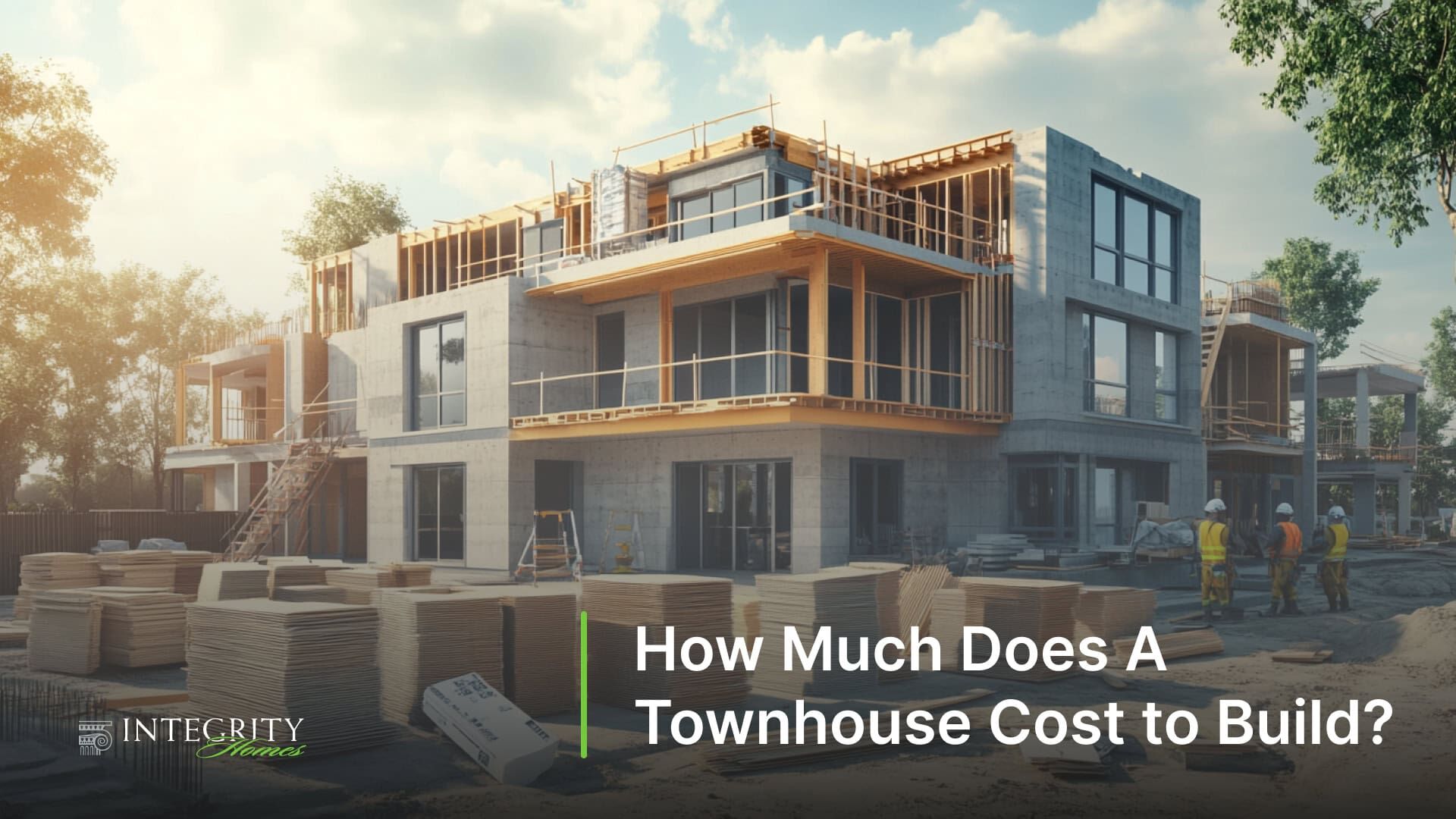
Curious about the cost to build a townhouse? Typically, you’re looking at an average range of $115,500 to $237,500. The total can fluctuate depending on factors such as location, architectural design choices, and the materials used. We’ll delve into all the specifics in this guide to give you a clearer picture of what financial commitments you might anticipate.
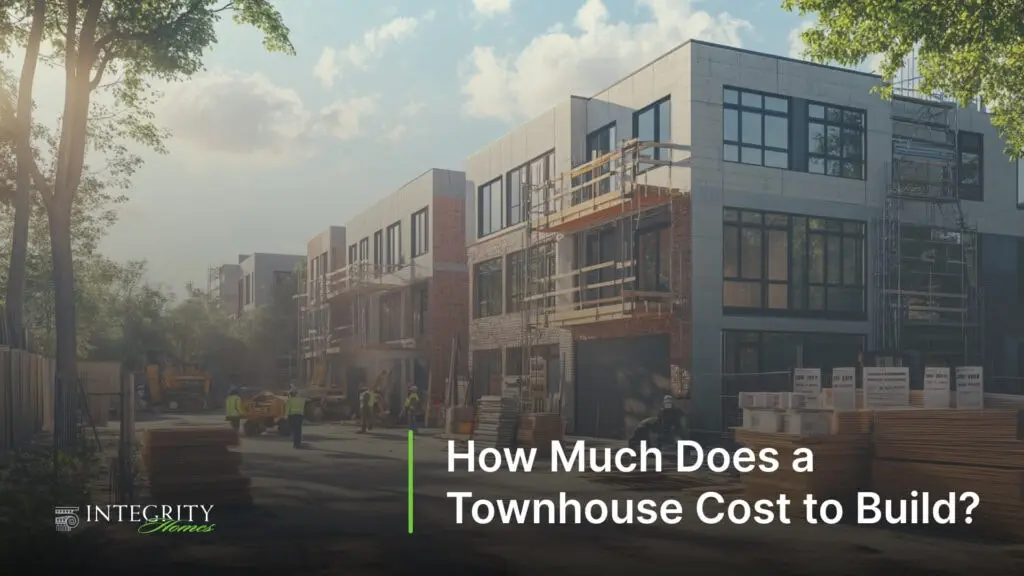
The expense associated with constructing a townhouse can vary greatly. On average, the cost to build one may span from $115,500 to $237,500. There are projects at the lower end of this spectrum that could be around $80,250 and others on the higher end reaching approximately $335,500. Such variance is attributed to differences in design preferences, location-specific factors, and material choices.
For example, the costs soar considerably in places like New York City where you might expect an average townhouse construction bill to hit around $947,759 primarily due to its soaring land values and labor expenses. In comparison, Denver’s more modest market yields an average cost closer to about $58357.These stark contrasts underscore how critical geographical considerations are when estimating the total investment required for building a townhouse.
A townhouse is a form of single-family dwelling, often constructed in series with adjoining walls and typically comes with modest private outdoor spaces. These residences strike an equilibrium between the seclusion afforded by a standalone house and the economic benefits associated with condominiums. In recent years, especially within constrained urban locales where housing demand soars, townhouses have witnessed an uptick in popularity.
When it comes to erecting a townhouse, costs can fluctuate based on various elements like geographical location, architectural design choices, and governing local ordinances. Costs are commonly calculated per square foot and might span from $80 to as much as $200. Hence grasping these determining factors is crucial during the planning phase of any such construction project.
The forthcoming blog post will provide you with comprehensive insights into embarking on building your own townhouse come 2024. It encapsulates pertinent data ranging from national average cost and expense benchmarks to variables that affect pricing while delineating comparisons among disparate construction methodologies—thereby offering readers nuanced knowledge for effectively navigating through fiscal dimensions entailed in constructing a townhome.
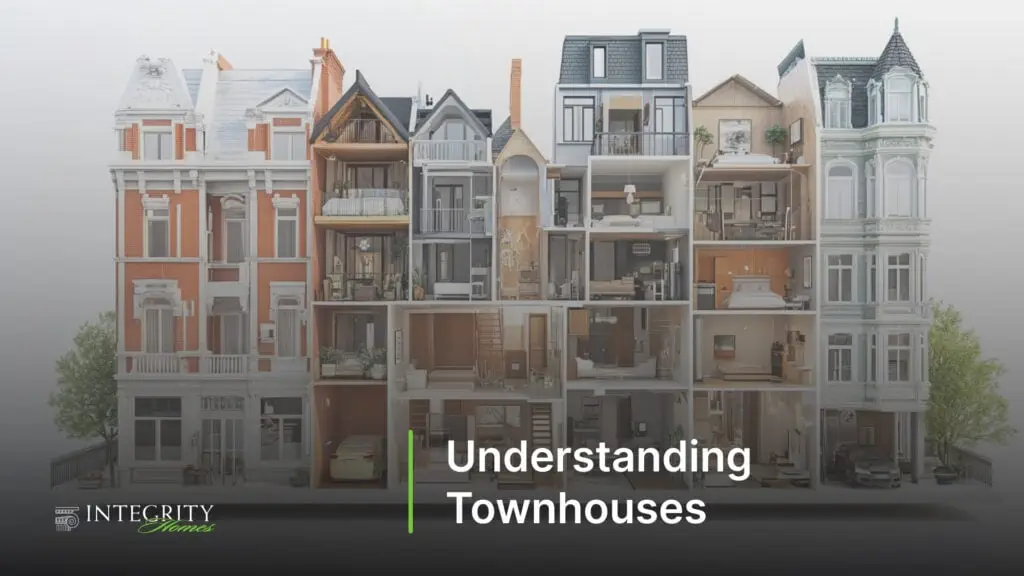
Townhouses merge the perks of single-family homes with those of condos, providing a compromise for individuals seeking less space while still retaining homeownership advantages. This includes options like traditional townhouse designs and varying sizes measured in square feet.
Building a townhouse can usually cost between $115,500 and $237,500. Expenses can vary greatly depending on both location and architectural style. These elements also significantly impact the overall prices of townhouses.
Typically, a townhouse is a type of single-family home that is constructed in rows and shares one or two walls with neighboring homes. They are often designed with two stories and may feature modest private outdoor areas such as fenced-in yards or shared common spaces.
Due to their space-efficient layout, townhouses have become favored options within city environments where available land tends to be limited.
Townhouses can be categorized into three main types. These types are traditional, stacked, and urban townhouses. Traditional townhouses are the most common, featuring two floors with shared walls and often small yards. Stacked townhouses consist of two units stacked on top of each other, creating a unique four-story layout that maximizes vertical space. Urban townhouses, on the other hand, are designed to blend with their city surroundings, often featuring larger, more luxurious townhouse interiors.
The type of townhouse significantly influences the construction costs. Traditional townhouses are generally less expensive to build compared to urban townhouses, which require more upscale materials and designs. Understanding these types helps in making an informed decision based on budget and preferences.
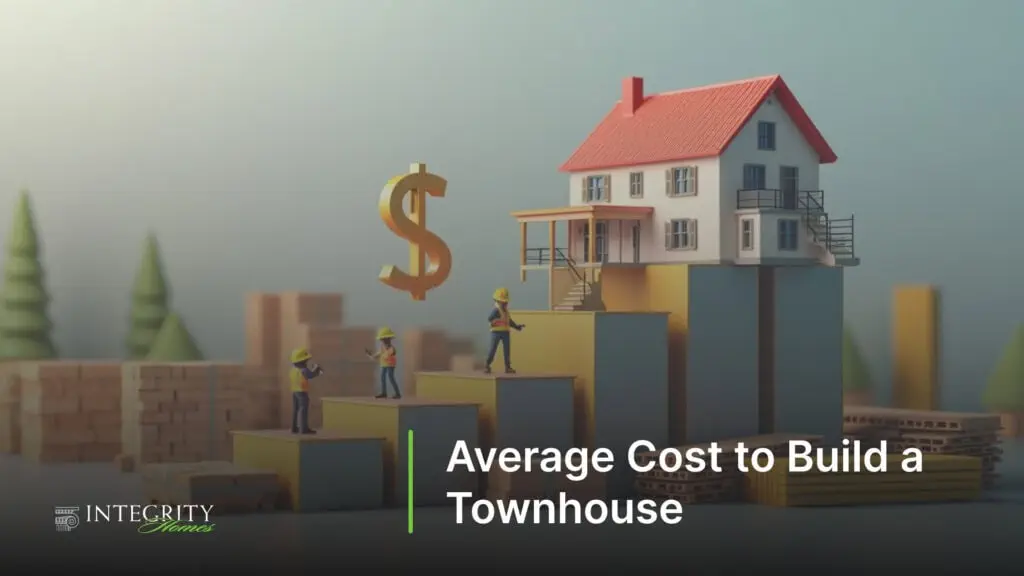
Typically, the expense of constructing a townhouse fluctuates considerably, with estimates running from $80 to $200 for every square foot. As a result, the overall cost per unit could fall anywhere between $120,000 and $340,000 based on particular elements like design, building methods used in construction, and geographical location.
Typically, the expense of constructing a townhouse ranges from $80 to $200 for each square foot. Depending on design and materials used, homes built using traditional stick-built techniques may cost between $150 and $250 per square foot. Modular construction can be more economical with expenses varying from $70 to $110 per square foot.
Understanding these costs per square foot is helpful in creating financial plans and comparisons across various building methods to identify which one provides better value for money.
Investors benefit from being informed about these cost differences as it allows them to allocate their funds wisely and avoid unforeseen expenditures.
Constructing a townhouse traditionally ranges in cost from $115,500 to $237,500 per unit. When opting for modular construction of townhouses, the expense is lower with an expected range of total costs between $120,000 and $255,000 per unit. The final cost to build each townhouse unit can vary greatly and may reach up to $340,000 depending on factors such as the size of the unit, quality of materials used and how many bedrooms are included.
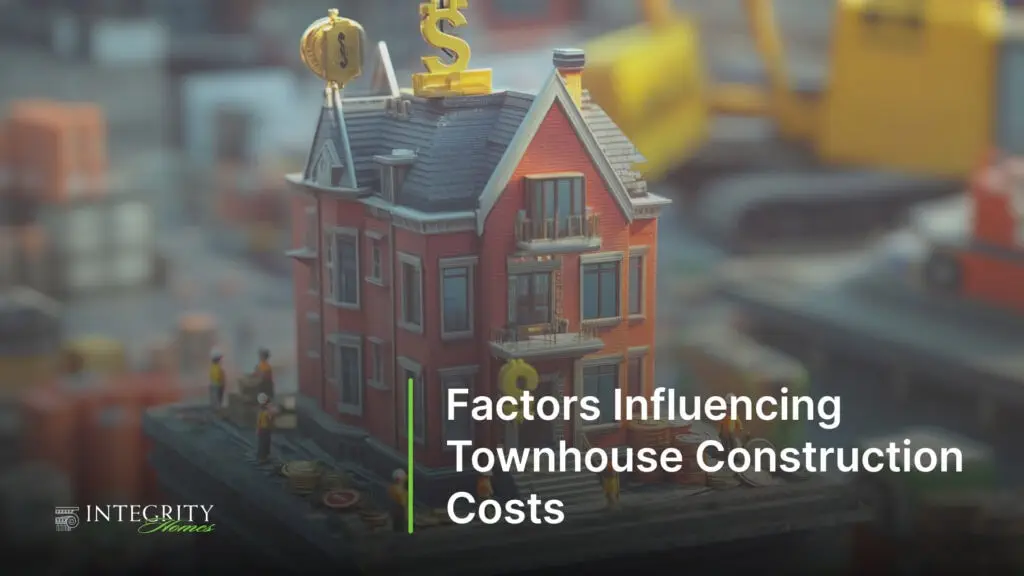
Understanding that the total expenses associated with constructing a townhouse are affected by various elements is crucial for accurate budgeting and planning. These elements encompass the geographical area where it’s built, the intricacy of its architectural design, and the style in which it is constructed.
The cost of construction is notably influenced by the location of land, as it can vary widely depending on the geographic area, which has a consequential impact on the total budget for a project. Specifically in urban areas, where land is typically pricier, this contributes to an increase in overall construction costs.
Securing building permits and successfully completing inspections are essential but can extend timelines and increase construction costs to ensure compliance with municipal standards.
Examples of expenses incurred before construction begins include permit fees, demolition charges, and various local levies.
Labor expenses constitute approximately 40% of the overall costs in building projects, making them a substantial component of the financial plan.
These expenditures are heavily impacted by the hourly rates charged by experts such as:
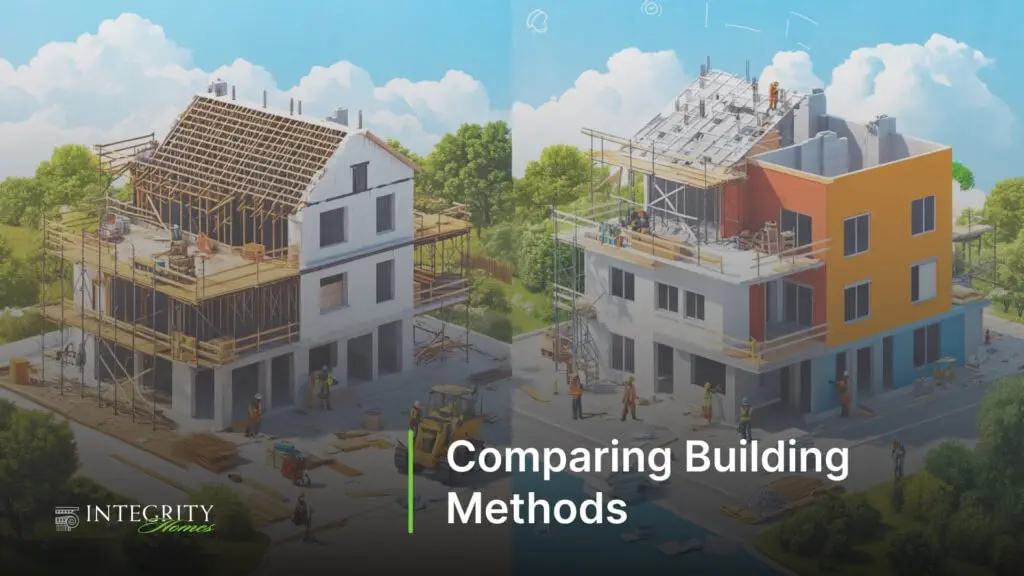
In the realm of townhouse development, one must evaluate two primary construction methodologies: traditional stick building and modular construction. Both approaches offer distinct benefits and have different financial consequences.
Constructing a townhouse on-site through traditional stick building provides an opportunity for extensive customization to meet homeowner preferences, despite typically being more expensive than modular construction. This method is often subject to weather-related delays that can drive up expenses and prolong the timeline of construction.
Despite its higher costs, the flexibility and capacity for incorporating distinctive design features make traditional stick building appealing for those desiring a custom home tailored to their individual style.
The process of modular construction for townhouses includes manufacturing segments in a controlled factory environment before they are brought to the site for assembly. This technique can be more rapid and may result in savings of 10 to 20 percent over conventional construction practices. Costs associated with this method usually vary between $70 and $110 per square foot.
Modular building methods not only provide cost effectiveness but also quick completion times. Deciding between prefab options and tailor-made designs can have an impact on the final expenses incurred. Although personalized modular designs tend to come at a higher price than pre-designed models, they offer enhanced customization regarding the layout and amenities available.
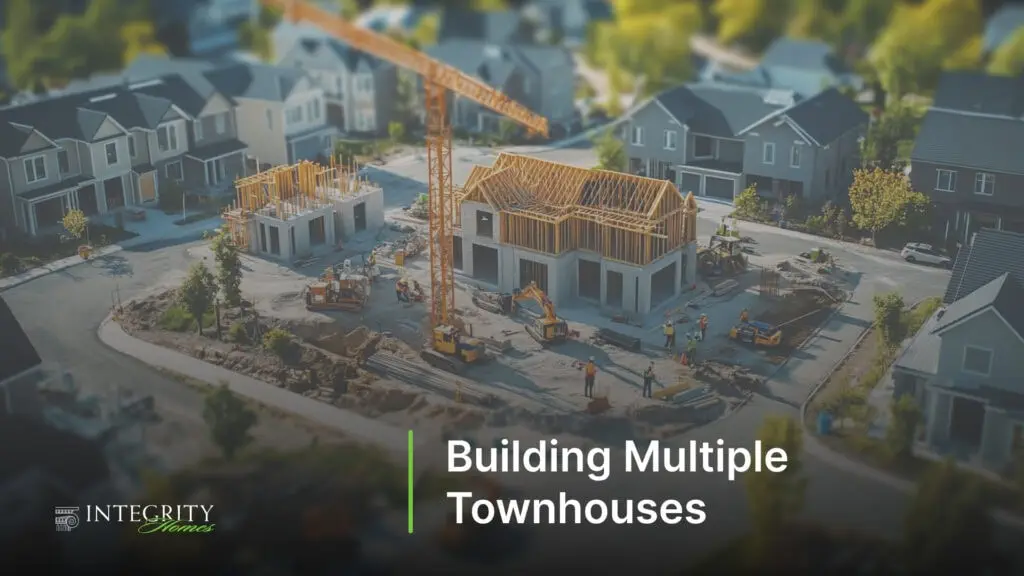
Building a collection of single townhouses or units within one development can lead to considerable savings in construction costs. When constructing four or more townhouses simultaneously, the expense for each unit typically stays consistent, which may yield potential cost advantages.
Developers seeking to optimize their investment and establish unified communities stand to gain from this strategy.
Utilizing conventional construction techniques to erect four townhouses typically incurs expenses ranging from $660,000 to $810,000. Opting for modular construction can lead to a more economical alternative, as the cost for creating the same number of units fluctuates between $420,000 and $660,000.
These projected figures encompass the comprehensive finishing work on both the interior and exterior aspects of the buildings, thereby streamlining financial planning for the full scope of the endeavor.
Building a multiple-unit townhouse complex can incur expenses from $240,000 up to $1,700,000. The final costs are influenced by the quantity of units included and the choice between construction techniques. Using conventional methods for constructing such developments usually leads to expenditures falling within the range of $1,040,000 to $1,270,000. However, opting for modular construction might result in lower costs that could vary from about $750,000 to around $1 million.
Townhouse complexes often feature shared facilities which enhance their attractiveness and worth. These amenities typically include communal gardens or yards, parking space as well as elements like community swimming pools—a perk for residents enjoying collective living spaces.
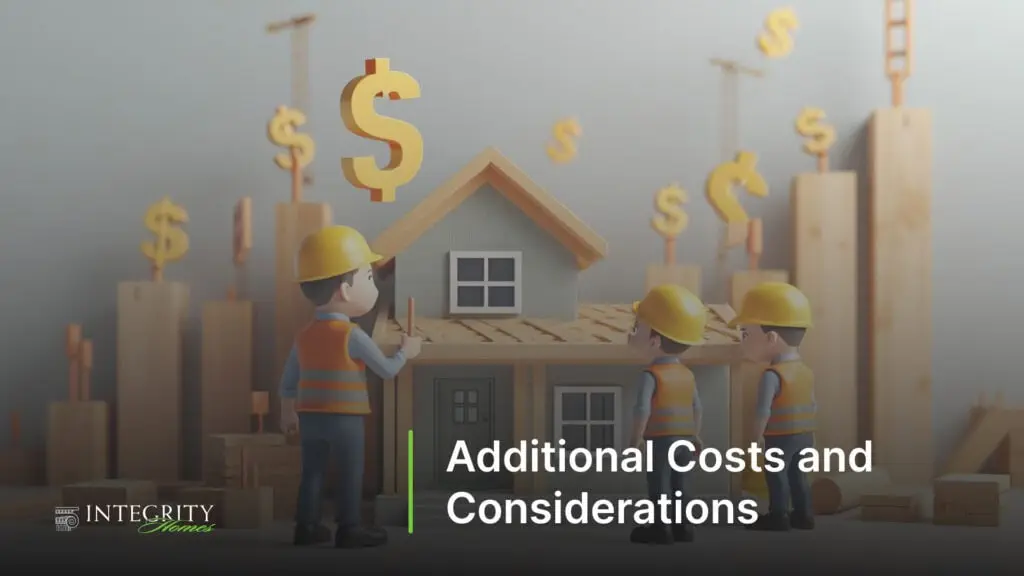
Additional financial factors, such as pre-construction expenses, finishing touches, and customization options, can notably affect the total budget beyond the fundamental construction costs.
Ensuring a smooth building process requires careful attention to pre-construction expenses. These include demolition costs, which can vary from $4 to $10 for each square foot, as well as the expenditures related to site preparation such as grading and establishing utility connections.
Accounting for these associated costs is vital in shaping both the total budget and the project’s timeline.
Enhancing a townhouse with superior materials and integrating smart home features can significantly increase both the upfront and ongoing maintenance expenses beyond the normal building costs. While these upgrades boost both attractiveness and practicality, they require meticulous budgeting to ensure financial feasibility.
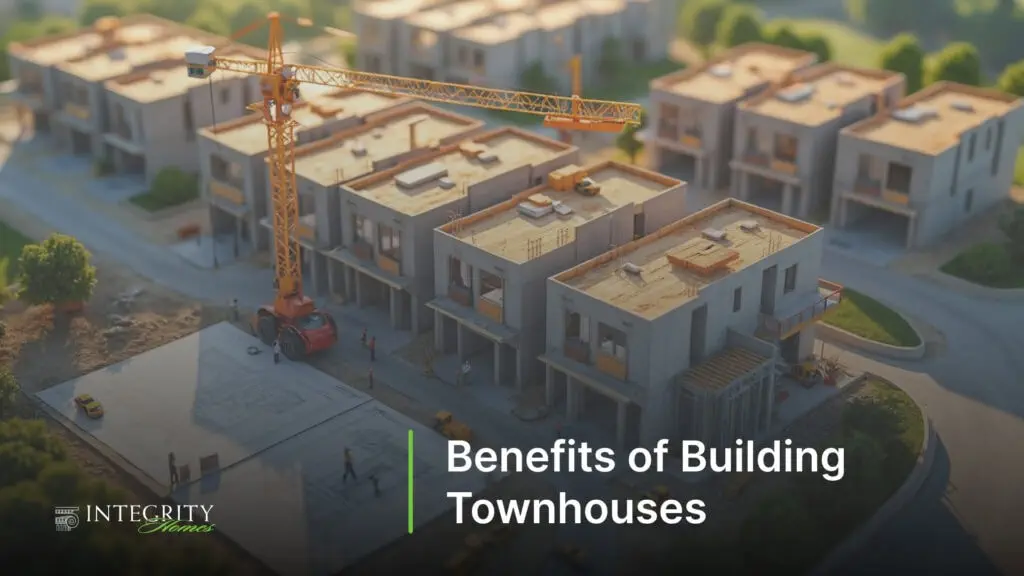
Constructing townhouses presents a variety of advantages such as reduced expenses related to ownership and the benefit of shared costs for maintenance. The efficiency with which these homes can be constructed contributes to savings in time during the building process.
The responsibilities for maintaining common spaces in most townhouses are typically handled by Homeowners Associations (HOA), thereby diminishing the burden on individual owners of townhouses.
The prospect of consistent rental income makes investing in a townhouse an appealing option. With the increasing demand for townhouses, there is robust rental interest which contributes to stable long-term financial gains from both the steadiness of the rental properties’ earnings and appreciation of property value.
Owners of townhouses may experience an increase in equity as their properties appreciate in value. In regions where demand is robust, the resale value of these townhouses tends to be elevated, positioning them as a favorable option for individuals aiming to accumulate wealth via real estate investments.
Seeking guidance from a real estate broker can offer valuable knowledge regarding current market dynamics and recommendations on specific neighborhoods.
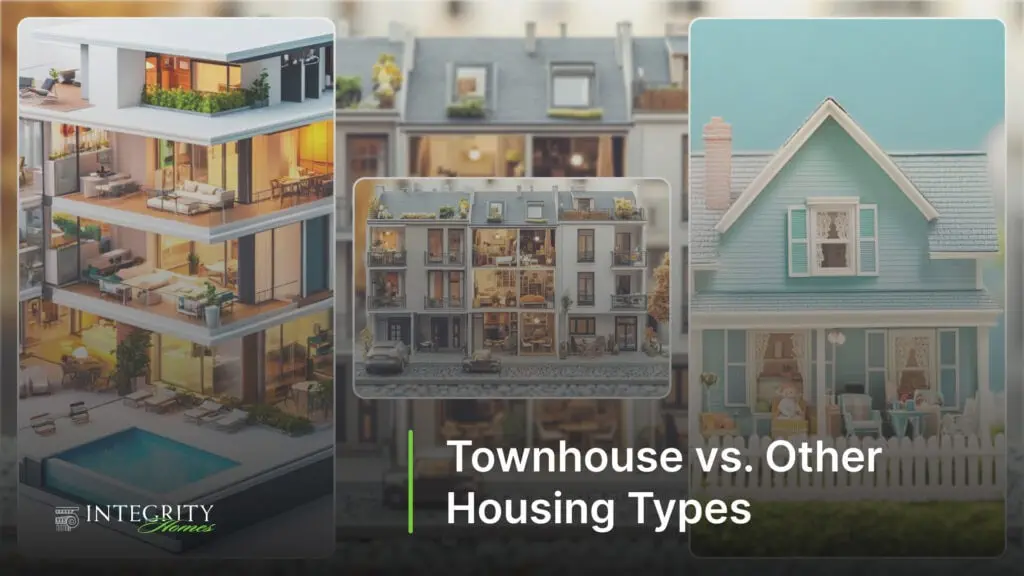
Townhouses offer a distinct balance between cost-efficiency and living area when contrasted with different types of residences. The construction costs are often lower for townhouses as opposed to detached single-family homes because they typically have shared walls and uniform architectural plans.
In this comparison, the attributes of townhouses are weighed against those of condominiums and single-family homes, providing valuable insights that can aid in making well-informed and affordable housing choices.
Owners of townhouses have ownership over both the inside and outside of their homes, including the land on which they stand. This is why townhouse property is different from condominiums where ownership is limited to the interior living space. Usually, a townhouse comes with its own yard or outdoor area, offering greater privacy as well as additional maintenance responsibilities compared to condos that tend to share external entrances and provide limited outdoor features.
Townhouses typically offer the benefit of reduced utility expenses and demand less maintenance from homeowners compared to single-family homes. Their placement in more compact communities frequently includes access to facilities such as swimming pools and fitness centers, thereby improving residents’ living standards.
On the other hand, single-family homes are often situated in more tranquil areas and Experience faster appreciation in their market value, providing an alternative way of living for those seeking a different residential experience.
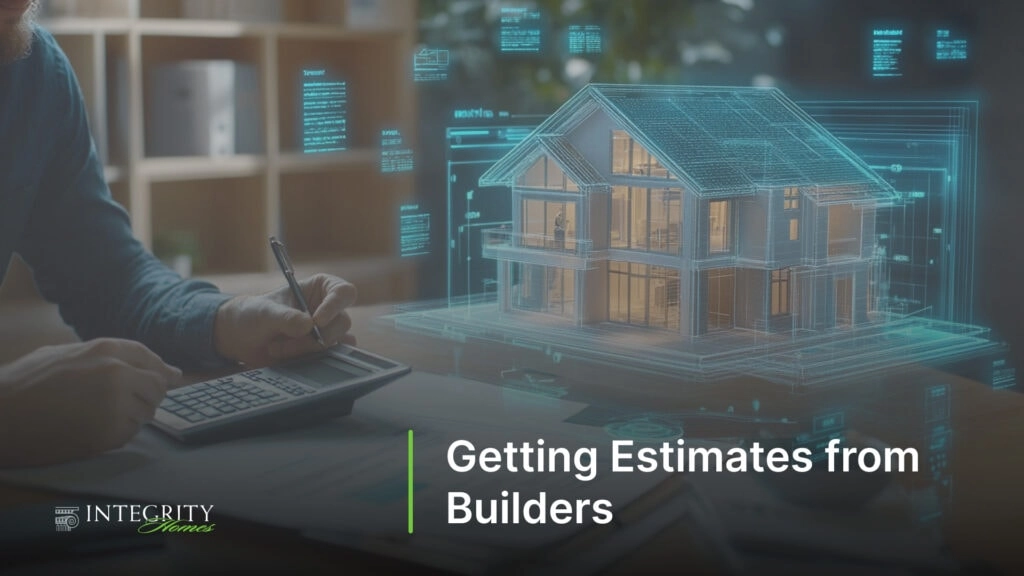
When planning your townhouse construction project, it’s vital to obtain estimates from skilled home builders first. A reliable construction team is not only crucial for the successful execution of a townhouse, but also necessary when securing construction loans since lenders tend to favor working with licensed professionals.
During your discussions with builders, it’s important to ask about their background in handling comparable projects and get insights from client testimonials. Understanding their approach to managing subcontractors as well as anticipating any additional expenses or potential delays is crucial.
By probing into the likelihood of unforeseen charges or setbacks, you can better prepare for a smooth construction experience without unexpected disruptions.
Examining a builder’s collection of past work is crucial for gaining an understanding of their experience and determining if they are well-suited to take on your townhouse construction project. By doing this, you can verify whether the style and caliber of the builder’s work match what you have in mind for your townhouse, thus ensuring that the outcome meets your expectations.
In summary, building a townhouse involves understanding various cost factors, from location and land prices to labor and construction methods. The average cost ranges, including per square foot and total cost per unit, provide a clear picture of what to expect financially. Comparing traditional stick building with modular construction highlights the pros and cons of each method, helping you choose the best approach for your project.
Understanding the benefits of building townhouses, including rental income potential and equity growth, underscores their value as an investment. By getting accurate estimates from builders and evaluating their portfolios, you can ensure a smooth and successful construction process. With this comprehensive guide, you are well-equipped to navigate the financial aspects of building townhouses in 2024.
In 2024, constructing a townhouse costs between $115,500 and $237,500. This cost variation depends on several elements including the construction site, architectural style, and building techniques used.
When mapping out your endeavor to build a townhouse, it is crucial to take into account these specific determinants.
Each townhouse style, be it traditional, stacked or urban, comes with unique features that influence both design and the expenses related to construction.
The construction of townhouses is heavily impacted by labor costs, which comprise around 40% of the entire expenditure. The varying fees charged by specialists such as architects and general contractors play a substantial role in shaping the final budget.
As a result, it is essential to control labor costs for efficient financial management within townhouse construction projects.
The approach of modular construction presents considerable benefits for the development of townhouses, notably faster construction durations and a reduction in costs ranging from 10 to 20 percent when measured against conventional building techniques.
This method achieves greater efficiency by fabricating segments at an off-site location, which effectively reduces labor and on-site building costs.
For precise projections on your townhouse endeavor, it’s important to question the builders about their prior experience and read feedback from previous clients. You should also understand their policies regarding subcontractors and be aware of any additional expenses or possible delays that might arise.
Examining their past work portfolios can offer valuable insights into the caliber of construction they’ve delivered in other projects.
Maryland | Frederick, MD | National Harbor, MD | Potomac, MD
Virginia | Alexandria, VA | Fairfax, VA | Lorton, VA | Northern, VA | Stafford, VA | Stephenson, VA | Winchester, VA | Washington DC